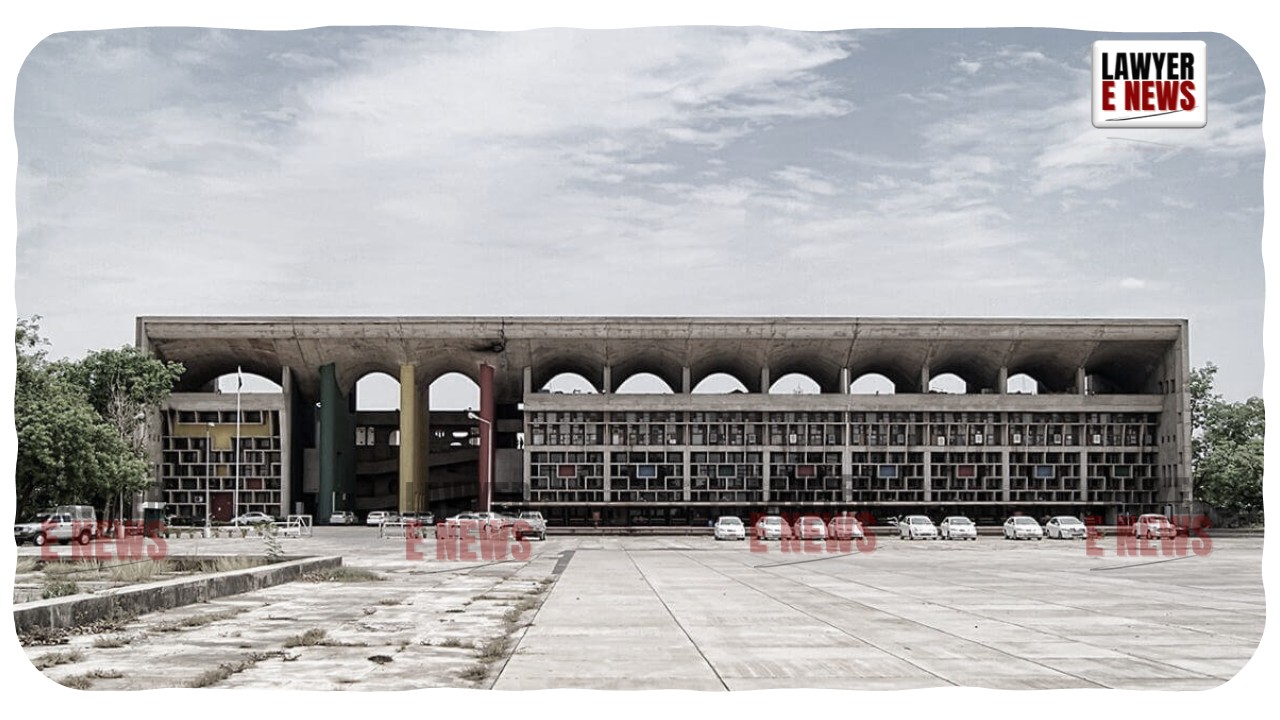-
by Admin
16 February 2026 10:43 AM



The Punjab and Haryana High Court has set aside the conviction of Yatender Pal, who was sentenced to life imprisonment under Section 302 IPC, along with punishments under Sections 342 and 201 read with Section 511 IPC. The Court held that the prosecution failed to establish a complete chain of circumstantial evidence that pointed solely to the guilt of the accused. The case, which relied on the last seen theory, extra-judicial confession, and recovery of incriminating articles, was found to have serious gaps and inconsistencies.
A Division Bench comprising Justice Gurvinder Singh Gill and Justice Jasjit Singh Bedi ruled that circumstantial evidence must be of a conclusive nature, leaving no reasonable doubt about the accused's innocence. Finding serious lapses in the prosecution’s case, the Court acquitted the accused.
"The circumstances from which the conclusion of guilt is to be drawn should be fully established. There must be a chain of evidence so complete as not to leave any reasonable ground for the conclusion consistent with the innocence of the accused," the Court observed, citing the Supreme Court's decision in Sharad Biridhichand Sarda v. State of Maharashtra (1984 AIR SC 1622).
"Last Seen Theory Does Not Prove Guilt When Time Gap is Substantial"
The prosecution relied on the testimony of PW12-Naresh, who allegedly saw the accused with the deceased at 10 PM on the night of the murder. However, the body was discovered the next morning at 8 AM, creating a significant time gap of nearly 10 hours. The Court found that such a long interval weakened the reliability of the last seen theory.
"When the time gap between the last seen evidence and the discovery of the body is large, the possibility of another person committing the crime cannot be ruled out. Circumstantial evidence must exclude all other hypotheses except guilt, which is not the case here," the Court held, citing State of Goa v. Sanjay Thakran (2007) 2 RCR (Criminal) 458.
"Extra-Judicial Confession is Weak Evidence and Cannot Be Sole Basis for Conviction"
The prosecution relied on extra-judicial confessions allegedly made by the accused to PW15, PW17, and PW18—all close family members of the complainant. The Court was skeptical about the credibility of these confessions, holding that:
"Extra-judicial confessions are inherently weak evidence and require strong corroboration. When an offence is committed in secrecy, it is highly unlikely that the accused would voluntarily confess to interested parties. In this case, no independent witnesses corroborated the confession."
Referring to The State of Punjab v. Bhajan Singh (1975 AIR SC 258), the Court reiterated that confessions made to closely related individuals lack credibility unless supported by independent evidence.
"Motive Found to be Weak and Unconvincing"
The prosecution claimed that the accused killed the victim because he was taunted as ‘Budha’ (old) and ‘Lichar’ (mean). The Court found this motive highly speculative and lacking in evidentiary value.
"The alleged motive is far-fetched and unconvincing. In circumstantial evidence cases, a strong motive is crucial. The prosecution has failed to prove a compelling reason why the accused would commit murder," the Court held.
PW19-Sudesh’s testimony, recorded a year after the incident, was also found unreliable. The Court noted that she failed to provide specific details about her alleged encounter with the accused and had never identified him before the trial.
"Recovery of Incriminating Articles is Highly Doubtful"
The prosecution claimed that the accused recovered a piece of rope used for strangulation and the victim's wallet containing cash and photos. The Court found the recovery evidence to be unreliable and suspicious.
"It is highly unlikely that the accused would retain such incriminating items. The knife allegedly used in the crime was found at the scene but was never linked to the accused. The key witness for the recovery was the victim’s maternal uncle, raising doubts about the impartiality of the testimony," the Court observed.
Additionally, the investigating officers had been subject to departmental inquiries for irregularities in the case, further weakening the credibility of the recovery evidence.
"Failure to Collect Crucial Forensic Evidence Weakens Prosecution’s Case"
The forensic report confirmed the presence of Lidocaine, a stupefying substance, in the victim’s body. However, several investigative lapses were noted. The complainant (PW17) was never medically examined to verify if he was also drugged, no samples were taken from the accused, and fingerprints lifted from the car were never exhibited in court.
"The failure to collect and present crucial forensic evidence raises doubts about the fairness and thoroughness of the investigation," the Court held.
"Lie Detector Test Refusal Cannot Be Used as Evidence Against the Accused"
The accused had refused to undergo a lie detector test, but the Court ruled that this could not be used as evidence of guilt. Citing Selvi v. State of Karnataka (2010 AIR SC 1974), the Court observed:
"A lie detector test can only be administered with consent, and refusal to undergo such a test cannot be treated as evidence of guilt. The results of such tests are merely investigative tools and cannot serve as substantive evidence in a criminal trial."
"Prosecution Failed to Prove Guilt Beyond Reasonable Doubt" – Conviction Set Aside
Summarizing its findings, the Court held: "The prosecution has failed to establish an unbroken chain of circumstances pointing solely to the guilt of the accused. The gaps in the investigation, the weak extra-judicial confession, the unreliable last seen theory, and the doubtful recovery all create reasonable doubt in the prosecution’s case. Accordingly, the conviction is set aside, and the accused is acquitted."
The ruling serves as a strong reaffirmation of the principle that an accused cannot be convicted unless guilt is established beyond reasonable doubt, particularly in cases based entirely on circumstantial evidence.
Date of Decision: 03 February 2025
